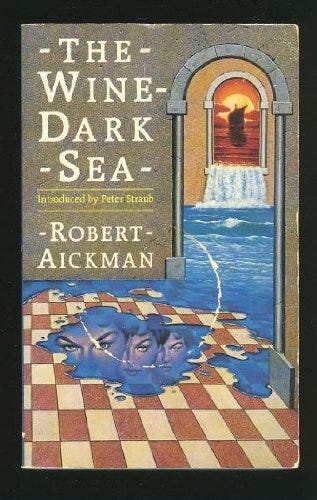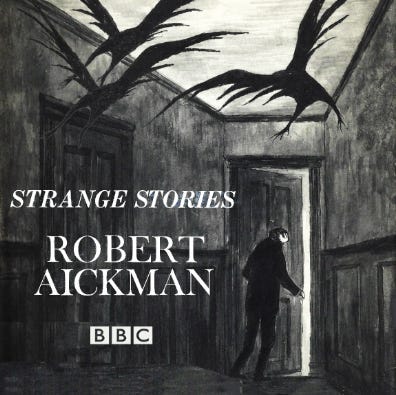My grandmother gave me a copy of a poem I wrote in the 7th grade. Humble brag: it was published in the 1996 volume of A Celebration of Young Poets, which I think published any kid as long as you paid the submission fee. I’ve held onto a few of the more ridiculous pieces of my childhood writing, and have read some out loud at comedy shows. However, this poem, “Night Sweats” provides an eerie glimpse into my mind as a stressed out 12 year old.
Night Sweats
As I lay asleep in bed
I awoke with terror in my head
Murder, blood, and mortal sin
To tell the fright, I can’t begin
Cobras, rattlers on the floor
Huge black widows on the door
Sick things crawling up my spine
As the bell tolled 3 o’9
Down my leg, a razor nail
Nausea waved as I turned pale
Taken away was my speech
Love and comfort out of reach
Curling, twisting, “Help me please!”
It’s my life they’re trying to seize
Open up the creaking door
Don’t let me drown in blood and gore
Clutching the bed, “Is this just a dream?”
My mom rushed in, “I heard you scream.”
Dong! Dong! Went the clock
As I lay there still in shock
There’s some silly stuff in here: cobras on the floor, begging not to drown in blood and gore, and the inexplicable dinging and donging of a clock, as if we lived around the corner from Big Ben and not in an apartment complex in northern New Jersey. I also remember my teacher giving me shit for starting with the line, “As I lay asleep in bed” because it should be obvious that I’m in bed already. No duh, but I still needed it to rhyme!
I’ve had sleep issues my entire life. Before these Sam Raimi-esque nightmares I was having regularly as a preteen, I used to sleepwalk as a little kid. The worst episode was when I woke up standing ankle deep in the snow outside of our apartment. Cold and terrified, I banged on the door until my mother woke up and let me in. Eventually I grew out of the physical act of getting up and walking in my sleep, but that doesn’t mean the shenanigans ended there.
Throughout the years I’ve freaked out those close to me with my nighttime episodes. Usually it’s waking up because I dream something huge is falling on me and then seeing the thing falling on me when I open my eyes. I also have a reoccurring sleep-induced hallucination that there is an intruder in my room. This is perhaps why I’ve never seen anything in the Paranormal Activity series—it hits a little too close to home. And aside dealing with the bad stuff while I’m asleep, I also have a hard time falling asleep.
I even went so far as to participate in a sleep study last year to try and figure out what exactly is going on. The sleep center was in a town called Wolf Lake, which was comically out in the middle of nowhere. The attending nurse hooked me up to a bunch of wires that stuck to my face and scalp with sludgy glue and then I was on my own. I decided it was a good time to reread Robert Aickman’s short story, Into the Wood.
In this tale, Margaret, a proper Englishwoman, is visiting Sweden while her husband is there on business. She doesn’t really care much for her husband’s coworkers and is bored by her surroundings, until she finds out about a “Kurhus” hotel up in the remote mountains where people go for rest cures. The Swedes are somewhat evasive about the details of the Kurhus, which piques Margaret’s interest even more. She takes a trip up there and discovers that its purpose is for people who have insomnia—and there’s a reason that it is isolated.
As one of the hotel’s residents explains, “When the trouble passes a certain point—a point far short of never sleeping at all, I assure you—the victim is driven out. Sleepers cannot live long with an insomniac. It is like living with something supernatural: people who are normal come to feel it as a shadow on their own lives. And they come to feel it quite soon.”
I don’t want to spoil this story for you in case you haven’t read it! All I will say is that it takes a wonderfully disquieting turn. If you’ve dealt with insomnia, nightmares, and all the things that make sleep a stressful event rather than a peaceful one, this story really hits the nail on the head.
Having an issue with a basic function like sleep is incredibly alienating, and it echoes the isolation that comes with addiction. It’s that feeling of being fundamentally different from “normal” people.
It’s no wonder that sleep and drinking alcohol have a complex and highly dysfunctional relationship with one another. Many of us relied on alcohol in order to chill out enough to go to sleep, despite the fact that it actually disrupts the sleep cycle. Although I got used to the low-quality sleep, the same way I got used to having hangovers. Having to recalibrate and figure out how to go to sleep after getting sober was a major challenge that I still working on, ten years into recovery.
Oh and the results of the sleep study? Pretty unhelpful. I didn’t dream while I was there, so there was no way to tell what the issues around the nightmares were. As you can probably imagine, it’s not easy to get good sleep while at a sleep study, with a camera in your room, in an unfamiliar and uncomfortable bed, with all the wires and whatnot glued to you. I left the sleep lab thinking, I am destined to be driven out of the village. I will never fit in among the Daywalkers.
After some time passed and I was able to get a little distance, I could see things a bit more clearly. Not being able to sleep like other people reminded me of how I felt when I realized that I couldn’t drink alcohol like other people. There was this outrage at not being able to do something that was seemingly easy for everyone else. Why should I have to fix this problem that shouldn’t be a problem in the first place?
So I went back to the basics of recovery, and approached this problem the same way I approached getting sober. Regardless of whether or not sleeping should be a problem for me, it is a problem for me. And, just because I have an issue doesn’t mean that I am some kind of scary weirdo who has to go live in a remote mountain hotel forever. Just like getting sober didn’t result in me becoming a gray oatmeal person with no personality.
I started working with a doctor on the sleep stuff. She told me a lot of helpful things, which I’ll summarize for you here.
What you do during the day impacts what happens at night. Obviously I knew if I drink a lot of caffeine it’s going to make me stay up. I mean, we all know that. But the doctor reminded me that I’ve got to build in little tension release valves during the day to let off the steam, or else I’m going to be a ball of nerves when it’s bedtime. This means baking some mindful self-care into my day, whether that’s stretching, going for a walk in the daylight, or brining awareness to my thoughts and the sensations in my body.
Sleep hygiene is real, but it takes time. If you follow all the recommended sleep hygiene guidelines, it will make a difference. The problem is that it won’t work magically right away, which is incredibly annoying. At this point, multiple doctors and multiple reputable clinical sources have all been saying the same thing, so I started to listen: stick to a schedule, don’t take naps during the day, reserve your bed just for sleep (not for eating or working), and ditch the screens for a paper book.
It's like sleep training a baby. Getting babies to sleep through the night is a process that requires lots of patience. An infant doesn’t know how to do anything, and that’s why they need somebody to teach them how. Sometimes we need to treat ourselves as gently as a little baby, and be the kind adult who is putting ourselves bed.
P.S.
Here’s where you can listen to some creepy Robert Aickman stories read by real British people on BBC Radio.
Support independent booksellers!
Buy books online from Bookshop.org and get your audio books from Libro.fm and Libby.




